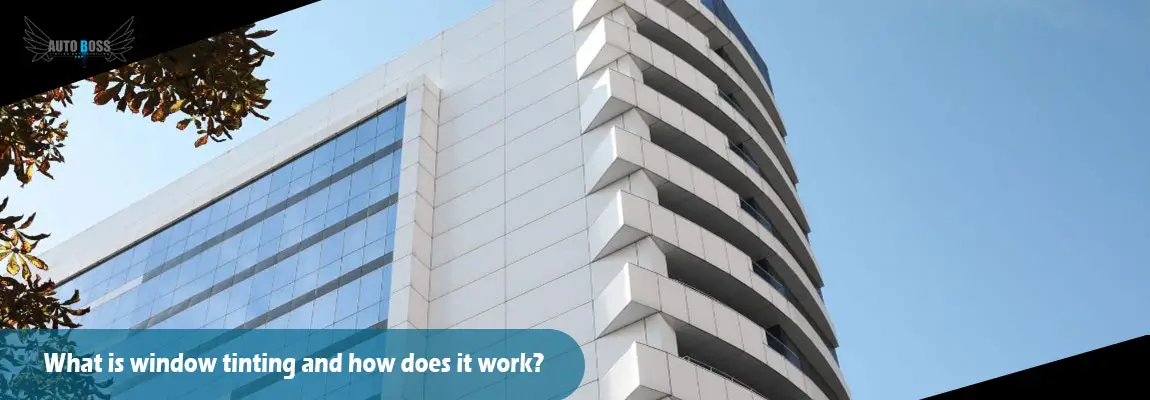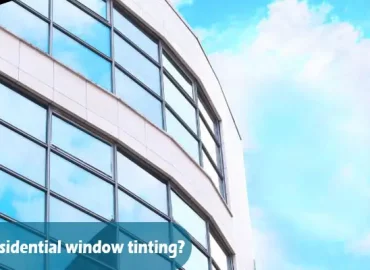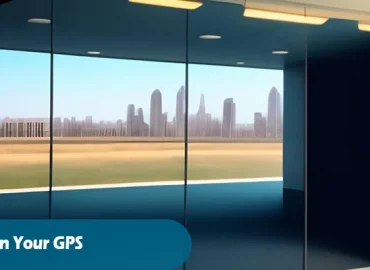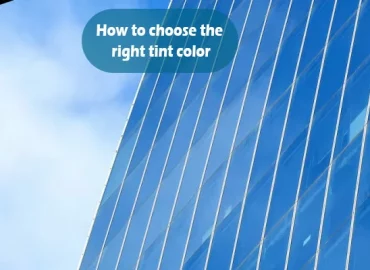When you see window film applied to someone’s building, you may wonder how window tinting works. Window tints are a specific type of polyester film with a scratch-resistant coating. This coating only allows some kinds of light rays to pass through while reflecting others. The easiest way to protect your building is applying a thin laminate film to your window glass, which is called window tinting.
The reasons why people choose to wrap their residential or commercial windows may vary. These usually include security, reducing solar gain (interior heat), and protection from UV rays, which are responsible for causing skin cancer.
How Window Tint Works
Of course, there are different aesthetic reasons for installing window tints as well. It does not hurt the window glass but makes it look cool.
Also, keep one important thing in mind: unlike sunglasses, which improve the ability to travel and drive at nighttime because of dark lenses, glare, and reduced visibility, window tinting film lowers the glare and doesn’t disturb you during the work. It also reduces the heat gain in summers, in return reducing the need of an AC system for maintaining the temperature. You can save a lot of money in terms of utility bills.
One more major misconception is that people think window tints are applied to the exterior of your glass window. Instead, You can apply them to the interior of the window as well; using the wrap on the outside can cause damage from elements.
In this blog, I’ll describe how tinting works and how you get benefits from window tinting – read more to know more.
Primary elements of window tinting
As we know, there are different types of wraps, all of them agree on the following basic points:
- Reflection
- Absorption
- Radiation
- Transmittance
These are the primary elements of the window films. The first is to reflect the harmful ultraviolet rays with the ‘sputter coating’ (a coating of metal particles), which reduces the amount of light that enters through the film. If there is more sputter applied, more light gets dismissed.
Window Tint Working in winter or cold
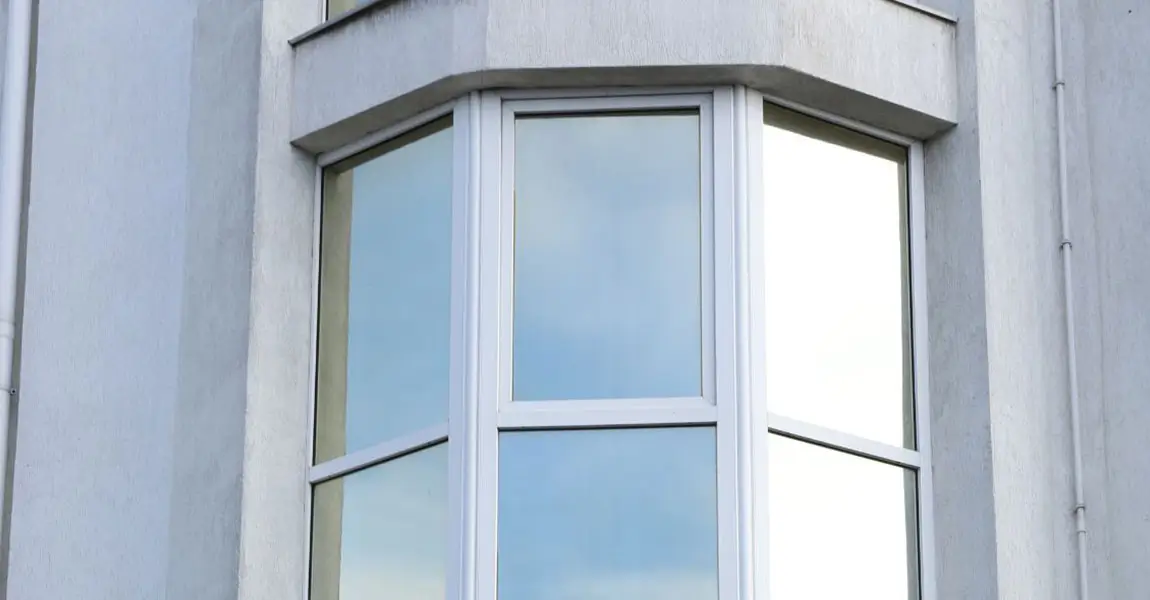
During the cold season, window tinting films also offer heat. The harmless heat from the sun goes through the film, and the film keeps it from escaping. Tint improves heating control in your house by offering you the benefit of a warmer and more comfortable temperature when driving in the cold season.
One more function of window films is when a percentage of sunlight is absorbed and does not enter inside the building. It also reduces the visible light and decreases the glare emanating from the sun, and glass buildings.
Visible light transmission
Depending on the amount of metal and some other features, window films can block different levels of visible light.
VLT is a measurement of the amount of visible light rays that go through a material. Measured as a percentage, VLT is important for vision glazing and usually ranges between 40-70%. This percentage tells us how much light can shine into your home and how dark the tint looks.
Once tinting film is applied, the elements of visible light that come into your home change. Standard auto glass without film reflects 5% of light (or VLR%), absorbs 5% ( VLA%), and allows 90% of visible light into the room.
These percentages can also change depending on the quality of the tinting film. Some types of tints are more reflective, while others absorb more light. We recommend you to use Window Films. Tinting products are good for reflecting light and maintaining your house’s temperature colder during summer and warmer during winter. They always make you comfortable when you are on a night drive.
What do you demand of your Windows tint to Work?

Both residential and commercial window tinting has tons of benefits, more than you think. For people who are living in hot, sunny climates, these films are excellent for comfortable and safe driving as they block out the sun’s harmful rays and prevent heat from damaging the interior.
Glare, heat, and sunburn are three major annoying issues that can be very efficiently solved if your windows have tinting films. Aside from protecting your eyes from the sun, it also blocks nearly all damaging rays, which can harm your home interior and, majorly, your skin.
Reasons for window tinting
The following are the main reasons for window tinting:
Privacy
No problem if you are working or resting in your home; you always deserve privacy. Without window films, anyone can look through your windows and disturb your privacy. Privacy is still important for your comfort while driving or at home. No matter if you’re trying to deter thieves or headbanging your favorite songs, home window tinting for privacy is a great investment for those who want enhanced privacy and security of their home.
Sun Protection
If you live in a hot climate area, buildings usually have window tinting films. While privacy is an added benefit, the majority of people most likely opt for window tint due to the huge amount of harmful sunlight in their area.
Tinted Windows can easily restrict UV rays from coming into your property. Window tinting films help in preventing glare, sunburn, and extreme heat. In the long term perspective, prevention from sunburn will reduce the odds of skin cancer.
Prevents Shattering
Yet another benefit of window tinting is glass shatter prevention. Window films help hold your window glass together to protect it from shattering in an accident or any natural disaster. This benefit allows you to protect your safety at home.
Reduced Glare
Glare reduction helps working on a laptop or watching TV the most, especially on sunny summer days. The most common problem of glare is it creates eye-strain and makes your leisure time a bit depressing. But don’t worry because these window tinting films will help prevent eye damage.
Conclusion
Window tinting is workable, especially for buildings with larger windows. The commercial buildings use these windows and the printed tints to make their walls an ad for their business. It protects the window glass from breakage and protects the furniture from fading and the people working there from the UV rays of the sun. Although you can install window tinting by yourself but it can end up with a mess if you are new to it. Suggest the professional window tinting service provider like Auto Boss. Contact us now to get the best in town window tinting services.

